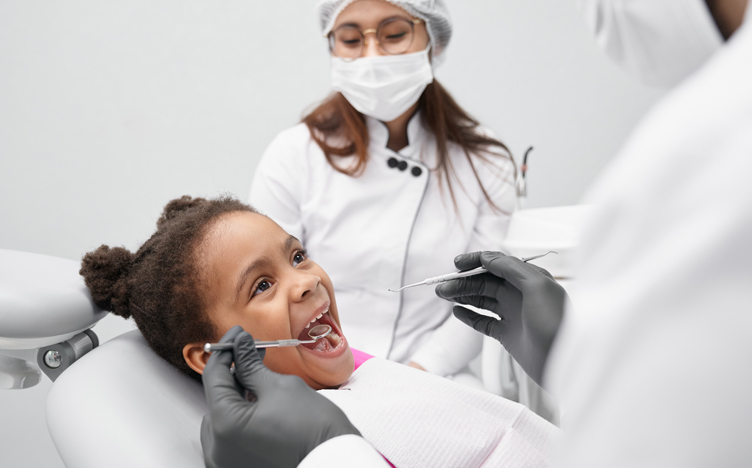"What dental health risks could I be taking while I'm sleeping?"
Readers ask, we answer
What harmful dental conditions occur overnight?
Jackson asks:
Hi, Jackson! When you’re sleeping, you can put your dental health at risk if you have chronic conditions caused by poor hygiene, breathing patterns or unmanaged stress. Let’s take a closer look at four risky conditions and what you can do to alleviate them:
1. Bacteria buildup
During the day, your body produces enough saliva to wash away bacteria in your mouth. However, when you’re sleeping, it produces much less saliva. This allows bacteria to accumulate in your mouth and can cause bad breath.
Tips for relief
Brush, floss and rinse with a fluoridated mouthwash before you go to bed and again in the morning.
2. Mouth breathing
If you have a stuffy nose, you may be breathing through your mouth when you sleep. Mouth breathing is one of the most common causes of dry mouth, which can lead to bad breath, gum disease and cavities.
Tips for relief:
Drink water before bed and keep water by your bedside in case you wake up thirsty. If you’re congested, use an over-the-counter saline mist and sleep with your head elevated.
3. Snoring
More than 90 million Americans snore every night, according to the National Sleep Foundation. Like mouth breathing, snoring can cause dry mouth.
Tips for relief:
Make sure you regularly get enough sleep so you aren’t overly tired. Sleep on your side, hydrate throughout the day, avoid alcohol before bedtime and use zippered or plastic pillow covers to reduce allergens caused by dust mites.
4. Teeth grinding (bruxism)
Almost two in five parents say their children show signs of teeth grinding, according to a 2005 study by the National Center for Biotechnology Information. However, this problem is less common in adults. Only 8% of adults grind their teeth at night, according to the National Sleep Foundation. This ongoing problem can cause teeth pain, sensitivity, chips and fractures. It can also lead to headaches, earaches and jaw pain.
Tips for relief:
Reduce stress and avoid caffeinated drinks after dinner. The next time you visit the dentist, ask about getting a custom-fit mouthguard to protect your teeth while you sleep. (Check your insurance plan for coverage details.)
Check with your physician and dentist to learn more about these potential solutions. Together, you can address your specific situation and better protect your smile while you sleep.
Have a question you’d like us to answer? Send it to grin@deltadental.com, and it could be featured in an upcoming issue.
Smiling with and through menopause
Oral health changes after menopause. Learn what to expect and how to take care of it.
Break the cycle, not your teeth
Find out how to break the harmful habits. After all, it’s your smile. Why hurt it?
When your child needs a tooth pulled
Your child’s tooth extraction can be scary. Knowing what to ask can help.








